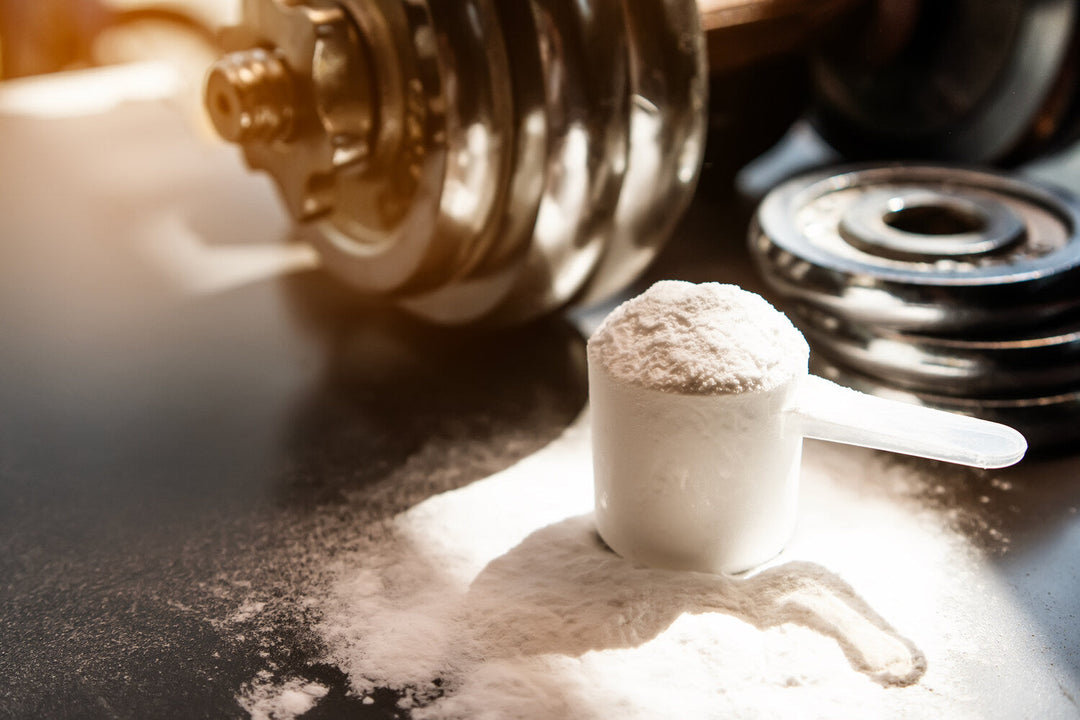Whey Protein vs. Pea Protein
If you're considering adding a protein powder to your recovery plan, you might wonder, “Whey protein or pea protein—what's the best option?”
While both offer unique benefits, they are quite different, especially when it comes to supporting surgery recovery and overall health goals.
Here, we break down everything you need to know about whey protein vs pea protein so you can make the best choice for your needs.
What this article covers:- What is Whey Protein?
- What is Pea Protein?
- Nutritional Profiles and Amino Acid Content
- Health Benefits of Whey Protein
- Health Benefits of Pea Protein
- Drawbacks and Potential Considerations
- When Whey Protein Might Be Better
- When Pea Protein Might Be Better
- References
What Is Whey Protein?
Whey protein, sourced from cow's milk, is a byproduct of the cheese-making process.
This protein is rich in amino acids and is considered a complete protein, meaning it contains all nine essential amino acids needed by the body.
Whey isolate and whey protein are two popular forms—whey isolate is more refined, containing a higher protein percentage and fewer fats and carbs.
As trusted experts, we often recommend whey protein for those needing a quick-absorbing protein source.
This makes it ideal for post-surgery recovery, as it provides the body with readily available nutrients to help support healing and muscle maintenance.*
What is Pea Protein?
Pea protein is derived from yellow split peas, making it a plant-based protein that is hypoallergenic and suitable for those avoiding dairy.
While pea protein is considered an incomplete protein, it can still support muscle recovery effectively, especially when combined with other plant proteins.*
Pea protein is especially popular among those with dietary restrictions, such as dairy intolerance or vegan preferences.
Nutritional Profiles and Amino Acid Content
Whey Protein
Whey protein has a superior amino acid profile, with high levels of branched-chain amino acids (BCAAs), which are essential for muscle recovery and maintenance.¹*
Whey protein’s fast absorption rate makes it a good choice for those needing a quick protein boost after surgery.
Pea Protein
Pea protein, while not a complete protein, contains a high concentration of arginine, which can benefit blood flow and overall cardiovascular health.²*
This protein is also absorbed at a moderate rate, making it suitable for those who prefer a plant-based option but still want to support muscle and tissue repair.*
Health Benefits of Whey Protein
Whey protein is renowned for its benefits in supporting muscle retention, immune function, and recovery. Its ability to be absorbed quickly allows it to deliver essential nutrients faster than plant-based proteins.³*
It’s ideal for:
- Supporting post-surgery recovery*
- Helping the body maintain muscle mass*
- Providing a complete amino acid profile

Health Benefits of Pea Protein
Pea protein offers several unique benefits, particularly for those with dietary restrictions. It's known for:
- Being hypoallergenic and easy to digest
- Supporting muscle recovery when combined with other plant-based proteins
- Providing a sustainable and eco-friendly protein source
Pea protein is also linked to cardiovascular health benefits, as its amino acid composition, specifically arginine, helps promote better blood circulation.²*
Drawbacks and Potential Considerations
While both whey and pea protein powders offer benefits, there are a few things to consider before deciding on the right one for you.
- Whey protein: Not suitable for those with dairy allergies. Some individuals also experience digestive discomfort, such as bloating or gas, with lower quality proteins. High-quality whey protein isolate like that found in Unjury® is very well tolerated, even by those with a lactose intolerance.
- Pea protein: Since it’s an incomplete protein, you may need to combine it with other plant proteins (like rice or hemp) to achieve a balanced amino acid profile. Pea protein also has a distinct taste and texture, which some people might find less appealing.
Whey protein is a good choice if:
- You need fast-absorbing protein for post-surgery recovery.
- You're looking for a complete protein source.
- You have no issues with dairy and prefer a clean mixing protein that blends well in many of your favorite foods
For those recovering from surgery, whey protein isolate is ideal, as it is highly purified, offering maximum protein with minimal fats or carbs.

When Pea Protein Is the Better Choice
Pea protein is likely a better fit if:
- You are dairy-free, vegan, or have allergies to animal products.
- You prefer a plant-based, sustainable protein source.
- You're looking for a hypoallergenic option that's more gentle on digestion.
Conclusion
Ultimately, both whey and pea protein have unique benefits. Whey protein is an excellent option for those seeking a quick, complete protein source that supports post-surgery recovery and muscle maintenance.
Pea protein, on the other hand, is ideal for those needing a plant-based, hypoallergenic protein.
At Unjury, we prioritize your health needs, so whichever you choose, we have you covered with the best protein options to support your journey.
If you're interested in learning more about these protein types, visit us at Unjury for a wide range of high-quality protein options tailored to your unique health goals.
References
- Negro M et al. J Sports Med Phys Fitness. 2008;48(3):347-351.
- McRae MP. J Chiropr Med. 2016;15(3):184-189.
- Arentson-Lantz EJ et al. J Anim Sci. 2021;99(4):skab060.
If you want to learn more, why not check out these articles below:
- Complete vs. Incomplete Proteins
- Plant Protein vs Whey
- Plant Protein vs. Animal Protein
- Collagen vs Whey Protein
- Casein vs Whey Protein
- List of High Protein Foods
- How to Add More Protein to Diet
- Does Protein Make You Feel Full?
- When to Eat Protein Bars
- How Much Protein Should an Athlete Eat?
- How to Add Protein to Salad
- Why Am I Craving Protein?
- Best Protein Powder for Women’s Weight Loss*
- Best Protein Powder for Menopause Weight Loss*
- Best Chocolate Protein Powder for Weight Loss











